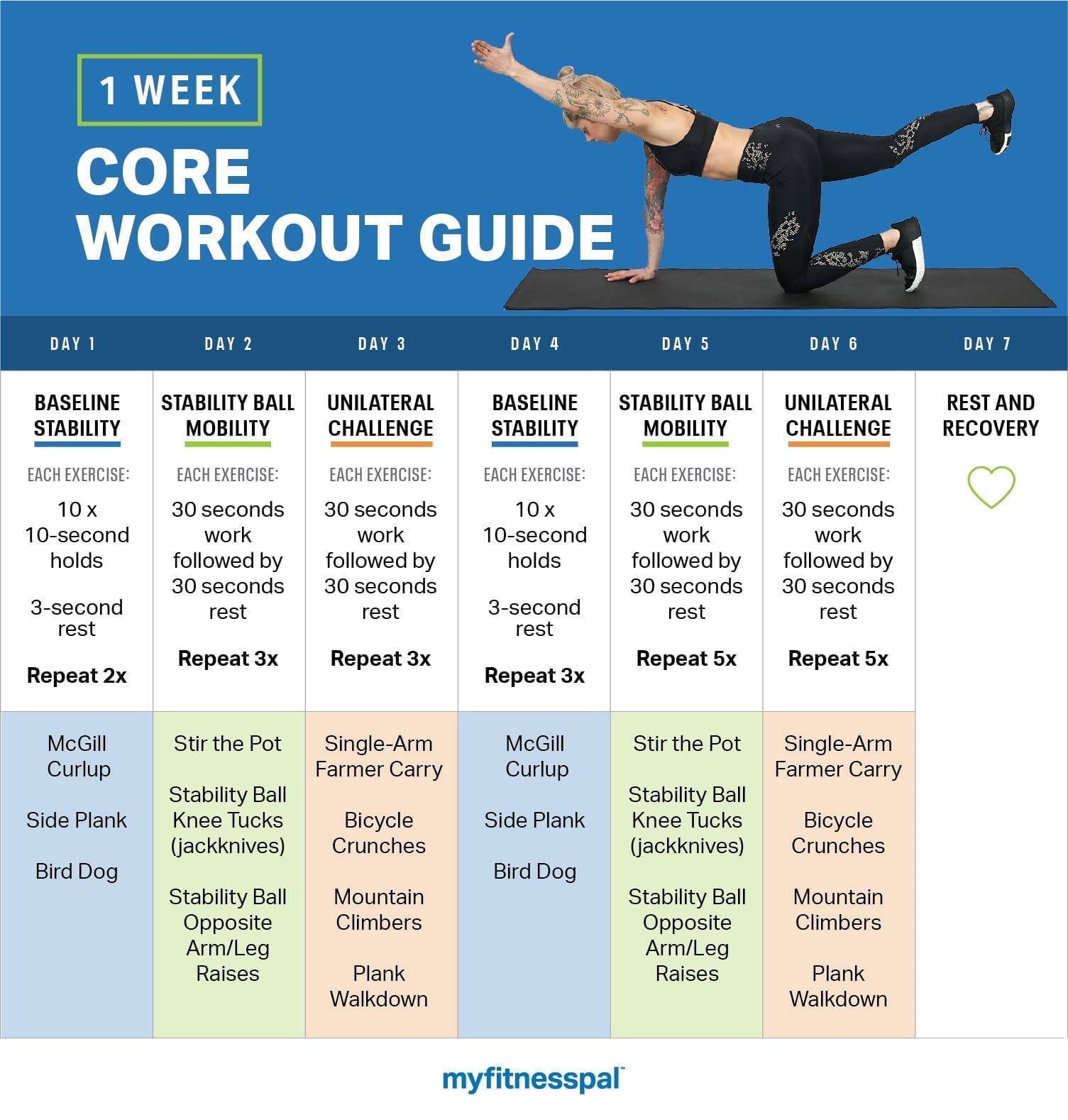Unlock Your Inner Strength: A Comprehensive Guide To Core Strengthening
Unlock Your Inner Strength: A Comprehensive Guide to Core Strengthening
Related Articles
- “Home Fitness Revolution: Unlock Your Potential Without Leaving Your House!”
- Unleash Your Inner Athlete: Best Practices For Home Workouts
- Unlock Your Fitness Potential: Big Secret Tips & Tricks To Transform Your Journey
- Fitness Journey Goals For Women Over 40: A Comprehensive Guide To Thriving
- Restarting Your Journey: Unleashing Motivation For A New Beginning
Introduction
Uncover insights to start or boost your journey with Unlock Your Inner Strength: A Comprehensive Guide to Core Strengthening.
Unlock Your Inner Strength: A Comprehensive Guide to Core Strengthening

The core. It’s more than just a six-pack; it’s the foundation of your entire body. A strong core provides stability, improves posture, enhances athletic performance, and even reduces back pain. But building a rock-solid core isn’t just about crunching your way to six-pack glory. It’s about understanding the nuances of core engagement and employing smart strategies that truly strengthen your deep abdominal muscles.
This comprehensive guide will take you on a journey through the world of core strengthening, equipping you with the knowledge and techniques to unlock your inner strength. We’ll delve into the science behind core engagement, explore a wide range of exercises, and uncover hidden tips and tricks to maximize your results.
Understanding Your Core: More Than Just Abs
The term "core" often gets associated with the visible abdominal muscles, but a truly strong core encompasses a complex network of muscles:
- Transverse Abdominis: This deep muscle acts like a corset, wrapping around your midsection and providing stability.
- Rectus Abdominis: The "six-pack" muscle, responsible for flexing the spine.
- Obliques: These muscles run diagonally along your sides, contributing to rotation and side bending.
- Erector Spinae: These muscles run along your back, supporting your spine and allowing you to extend and rotate your torso.
- Pelvic Floor Muscles: These muscles form the base of your pelvic floor, supporting your bladder and bowel.

Review
The Power of Proper Form: The Key to Core Activation
While countless exercises target the core, the real magic lies in proper form. This ensures that you’re engaging the right muscles and maximizing your gains. Here’s a breakdown of essential principles:
- Engage Your Core: Before even attempting an exercise, consciously engage your core by drawing your belly button towards your spine. This activates your deep abdominal muscles, creating a foundation for stability.
- Maintain a Neutral Spine: Avoid excessive arching or rounding of your back. A neutral spine, where your natural curves are maintained, minimizes strain and maximizes core engagement.
- Breathe Deeply: Proper breathing is crucial for core activation. Inhale deeply through your nose, expanding your chest and belly, and exhale slowly through your mouth, drawing your belly button inwards.
- Control the Movement: Avoid jerky movements and focus on slow, controlled repetitions. This helps you maintain proper form and engage the right muscles.
Step-by-Step Guide
Progression is Key: Building Strength Gradually
Just like any other muscle group, your core needs to be trained gradually. Start with exercises that challenge you without overwhelming your body. As you progress, increase the difficulty by:
- Adding Resistance: Incorporate weights, resistance bands, or even your own bodyweight to increase the challenge.
- Changing the Angle: Experiment with different angles, such as planks on your elbows, side planks, or hanging leg raises.
- Increasing the Time Under Tension: Hold isometric exercises like planks for longer durations or perform slow, controlled repetitions.
- Adding Variations: Explore different exercise variations to challenge your core in new ways.
Tips to Maximize Your Fitness Journey
Core Strengthening Exercises: A Comprehensive Toolkit
Here’s a curated list of core strengthening exercises, categorized by muscle group and difficulty level:
Beginner:
- Plank: A classic exercise that targets the entire core. Start with a modified plank on your knees and progress to a full plank on your forearms.
- Bird Dog: This exercise strengthens your core while improving balance and coordination. Start with a modified version on your knees and progress to a full bird dog.
- Knee Drive: This simple exercise engages your core while improving hip flexibility and strength.
- Crunches: Focus on controlled movements and engaging your core, not just your neck.
- Russian Twists: A great exercise for strengthening your obliques. Start with a modified version on the floor and progress to a full Russian twist.
Intermediate:
- Side Plank: This exercise targets your obliques and strengthens your core stability. Start with a modified side plank on your forearm and progress to a full side plank.
- Hanging Leg Raises: This challenging exercise strengthens your entire core, including your pelvic floor muscles. Start with assisted leg raises and progress to full hanging leg raises.
- Weighted Crunches: Increase the intensity of your crunches by adding weight.
- Mountain Climbers: This dynamic exercise engages your entire core while improving cardiovascular fitness.
- Dead Bug: This exercise targets your core while improving hip stability and control.
Advanced:
- Dragon Flag: This exercise requires significant strength and control, targeting your entire core.
- Leg Raises (Straight or Bent): This advanced exercise challenges your core and improves hip flexor strength.
- Weighted Russian Twists: Increase the intensity of your Russian twists by adding weight.
- Anti-Rotation Presses: This exercise challenges your core’s ability to resist rotation.
- Hollow Body Hold: This isometric exercise targets your entire core, requiring significant strength and control.
Tips and Tricks for Maximizing Your Core Strength
- Focus on Mind-Muscle Connection: Pay close attention to how your core muscles feel during each exercise. This will help you engage them more effectively.
- Progressive Overload: Challenge your core by gradually increasing the intensity, duration, or weight of your exercises.
- Train Your Core Regularly: Aim for 2-3 core workouts per week, incorporating a variety of exercises.
- Don’t Neglect Rest: Allow your core muscles to recover between workouts.
- Listen to Your Body: Pay attention to any pain or discomfort, and modify exercises accordingly.
- Don’t Forget Your Pelvic Floor: Engage your pelvic floor muscles during core exercises for added strength and support.
- Incorporate Core Work into Everyday Activities: Think about engaging your core during activities like walking, standing, and even sitting.
Beyond Exercises: Lifestyle Habits for a Strong Core
- Maintain Good Posture: Proper posture reduces strain on your core and helps you engage your muscles effectively.
- Practice Mindful Breathing: Deep, conscious breathing helps activate your core muscles and promotes relaxation.
- Limit Sitting: Prolonged sitting weakens your core muscles. Aim to stand or move around regularly.
- Hydrate: Staying hydrated helps your muscles function optimally and promotes recovery.
- Get Enough Sleep: Rest is essential for muscle repair and growth.
The Benefits of a Strong Core: A Holistic Approach
A strong core offers a multitude of benefits that extend beyond aesthetics:
- Improved Posture: A strong core provides stability and support, helping you maintain proper posture and reduce back pain.
- Enhanced Athletic Performance: A strong core improves balance, coordination, and power, enhancing athletic performance in various sports.
- Reduced Risk of Injuries: A strong core provides stability and support, reducing the risk of injuries, especially in the back and lower extremities.
- Improved Digestion: A strong core helps regulate digestive function and reduces bloating.
- Reduced Back Pain: A strong core supports your spine, reducing strain and alleviating back pain.
- Increased Confidence: Feeling strong and fit can boost your confidence and self-esteem.
Conclusion: Embracing the Journey of Core Strengthening
Building a strong core is an ongoing journey, not a destination. It requires consistency, dedication, and a willingness to learn and adapt. Embrace the process, explore different exercises, and listen to your body. With time and effort, you’ll unlock the incredible benefits of a strong core, transforming your body and your life.
Frequently Asked Questions
Q: How often should I train my core?
A: Aim for 2-3 core workouts per week, incorporating a variety of exercises.
Q: Can I overtrain my core?
A: Yes, you can overtrain your core. Listen to your body and allow for adequate rest between workouts.
Q: How long does it take to build a strong core?
A: The time it takes to build a strong core varies depending on your individual starting point, training frequency, and consistency.
Q: What are some common core strengthening mistakes?
A: Common mistakes include neglecting proper form, overtraining, and not incorporating a variety of exercises.
Q: What are some good resources for learning more about core strengthening?
A: There are many excellent resources available online, including articles, videos, and fitness apps. Consult with a certified personal trainer for personalized guidance.
Source URL: [Insert source URL here]
Closure
We hope this article has provided valuable insights into Unlock Your Inner Strength: A Comprehensive Guide to Core Strengthening. Stay with us for more tips on fitness and wellness!
Let us know your thoughts on Unlock Your Inner Strength: A Comprehensive Guide to Core Strengthening in the comments below.
Don’t miss out on future content to help you reach your fitness goals—follow us for the latest updates.



